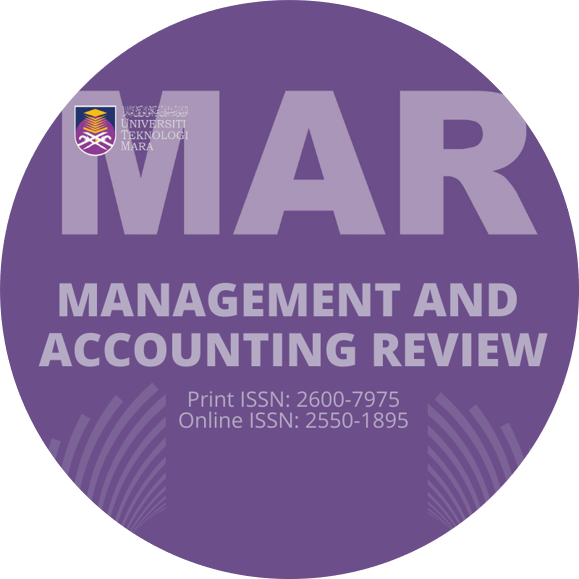Volume 14 No. 2, December 2015
ARTICLE INFO
Article History:
Received: 15 April 2015
Accepted: 24 September 2015
Published: 30 December 2015
MANAGEMENT AND ACCOUNTING REVIEW, VOLUME 14 NO. 2, DECEMBER 2015
Corporate Integrity as an Antidote to Corruption and Sustenance of Organizational Development: The Renewed Role of Management Accountants
Normah Omar
Accounting Research Institute,
Universiti Teknologi MARA, Malaysia
Accounting Research Institute,
Universiti Teknologi MARA, Malaysia
ABSTRACT
The United Nations Convention Against Corruption (UNCAC) singled out corruption as one of the most complex, difficult, and corrosive problems the world faces at present. Corruption undermines fair competition, distorts economic investments, and deprives governments of resources needed for sustainable growth and development. Sustainable development is an integrated approach that promotes economic, social and environmental growths and specifically involves economic sustainability. In business operation, sustainable economic development calls for the effective and efficient use of resources to ensure that a business will be sustained over a number of years while consistently returning profit. Corporations that promote sustainable economic development must initiate measures to mitigate corruption. Similar to other “moral diseases” such as fraud and deceit, corruption is best “prevented than cured.” This study proposes a self-measurement tool, namely, Corporate Integrity Assessment Questionnaire (CIAQ). This tool can be used by public and private corporations to benchmark their initiatives in promoting integrity in the workplace. CIAQ helps alleviate corruption. CIAQ is premised on 12 contextual constructs and administered (collaboratively with the participating corporation) on employees of various ranks. Each contextual variable, which is represented by related descriptors, is assessed using a five-point Likert scale. A management accountant should the play the role of an “integrity officer” and embark on this initiative. Scores are further categorized into five benchmark points of “0%” (integrity initiative has not started), “25%” (integrity is a mere compliance mindset), “50%” (the beginning of a programmatic integrity thrust), “75%” (integrity program is fairly robust), and “100%” (adoption of global best practices). A case study of a large conglomerate in Malaysia is presented to explain the usage of CIAQ. Based on the findings of this study, the company opted for a holistic approach in implementing its integrity ecosystem.
Keywords: corporate integrity system, integrity measures, corruption, public sector, service delivery, financial performance, Malaysia
Keywords: corporate integrity system, integrity measures, corruption, public sector, service delivery, financial performance, Malaysia





